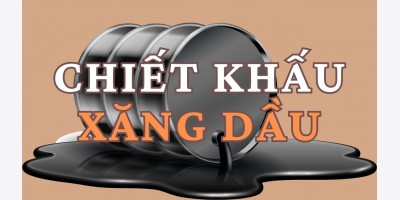Dầu thô tiến đến chốt phiên tăng giá tuần thứ 4 liên tiếp tại thị trÆ°á»ng
Giá giao sau ít thay đổi sau khi tăng 0.6% hôm qua sau khi Ngân hàng Trung Æ°Æ¡ng Châu Âu thông báo rằng Ä‘ã làm việc vá»›i Fed, Ngân hàng Anh, Ngân hàng Nháºt và Ngân hàng quốc gia Thụy Sỹ vá» việc gia hạn các khoản nợ 3 tháng đối vá»›i các ngân hàng thuá»™c khu vá»±c đồng Euro. Theo tính toán của Bloomberg trên cÆ¡ sở Báo cáo thống kê vá» Năng lượng thế giá»›i của BP Plc, 17 quốc gia thuá»™c khu vá»±c đồng tiá»n chung châu Âu chiếm khoảng 12 % tổng nhu cầu dầu má» thế giá»›i.
Dầu thô giao tháng 10 đạt 89.25 USD/thùng, giảm 16 cent trong giao dịch Ä‘iện tá» tại sàn New York Mercantile Exchange lúc 10h41, giá» Sydney. Hôm qua, giá tăng 49 cent lên 89.40 USD/thùng. Kể từ đầu tuần giá Ä‘ã tăng 2.3% và hiện cao hÆ¡n 20% so vá»›i năm ngoái.
Dầu thô Brent giao tháng 11 đạt 112.34 USD/thùng, tăng 4 cent tại sàn ICE Futures Europe – London. Hợp đồng tháng 10 Ä‘ã hết hạn tăng 2.94 lên 115.34 chốt phiên hôm qua. Giá Brent hiện cao hÆ¡n 43% so vá»›i năm trÆ°á»›c.
Hợp đồng giao dịch chuẩn châu Âu chênh lệch cao hÆ¡n 25.94 USD/thùng so vá»›i dầu WTI của Mỹ, thấp hÆ¡n mức ká»· lục 26.87 USD/thùng láºp hôm 6/9.
Libya sẽ nối lại xuất khẩu dầu thô trong vòng 3 đến 4 ngày tá»›i, đại diện nÆ°á»›c này tại Doha, ông Abdulla Saudi cho biết. Libya, sở hữu trữ lượng dầu thô lá»›n nhất châu Phi dá»± kiến sẽ sản xuất 700,000 thùng/ngày tính đến cuối năm nay và dá»± kiến đến cuối năm 2012 sẽ lên 1.6 triệu thùng/ngày.
Oil Set for Fourth Weekly Gain on Bets
By Ben Sharples - Sep 16, 2011 7:47 AM GMT+0700
Oil headed for a fourth week of gains in
Futures were little changed after climbing 0.6 percent yesterday as the European Central Bank said it worked with the Federal Reserve, the Bank of England, the Bank of Japan and the Swiss National Bank to extend three-month loans to euro-area banks. The 17 euro nations accounted for about 12 percent of global oil demand in 2010, according to Bloomberg calculations based on BP Plc’s Statistical Review of World Energy.
“News about a boost to European bank funding eased concerns about a slowing global economy,” John Peters, a senior economist at Commonwealth Bank of
Crude for October delivery was at $89.24 a barrel, down 16 cents, in electronic trading on the New York Mercantile Exchange at 10:41 a.m.
Brent oil for November settlement was at $112.34 a barrel, up 4 cents, on the London-based ICE Futures Europe Exchange. The October contract, which expired, gained $2.94, or 2.6 percent, to $115.34 yesterday. Prices are up 43 percent the past year.
Libyan Output
The European benchmark contract for October closed at a premium of $25.94 to West Texas Intermediate futures yesterday, up from $23.49 on Sept. 14 and compared with a record settlement of $26.87 on Sept. 6.
Fighting in








